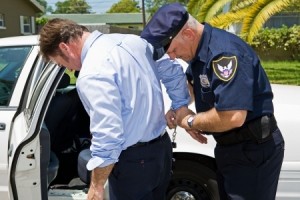 The crime of robbery in Muskogee is governed by Title 21 of the Oklahoma Statutes. To obtain a conviction, a prosecutor must prove each part of the crime’s definition beyond a reasonable doubt. These parts are called “elements.”
The crime of robbery in Muskogee is governed by Title 21 of the Oklahoma Statutes. To obtain a conviction, a prosecutor must prove each part of the crime’s definition beyond a reasonable doubt. These parts are called “elements.”
The prosecutor must prove four elements in a robbery case. First, he will need to prove that an individual’s actions amounted to a wrongful taking of another’s personal property. This simply means that the defendant took something that belonged to another person.
Second, the defendant must have taken the item from the victim’s “person or immediate presence.” Therefore, stealing someone’s property when the person was not there is not a robbery.
Third, the robbery must have also been against the victim’s will. The victim must not have willfully allowed the defendant to take the item.
Finally, the robbery must have been accomplished by means of force or fear.
The “Force or Fear” Requirement
To meet the “force or fear” requirement, a robbery suspect must have used force or fear to either obtain the property or to prevent the owner from resisting its taking. If the suspect only uses force or fear as a means of escape, they would not have committed robbery.
If a suspect only uses force to commit the robbery in Muskogee, it is not relevant how much force a suspect uses. Any amount of force will suffice. If, on the other hand, a suspect only uses fear to accomplish a robbery, the person robbed must have feared immediate or future injury to either himself or family, or to any other person in his company at the time of the robbery.
First or Second Degree Robbery in Muskogee?
A defendant found guilty of robbery, as defined above, will either be convicted of robbery in the first or second degree.
This distinction is significant because any person guilty of robbery in the first degree can serve at least 10 years in state prison.
A person found guilty of second-degree robbery can serve between 1 and 10 years in prison. Okla. Stat. tit. 21 § 799
Generally, a prosecutor will try to secure a conviction of first-degree robbery if the defendant committed a felony against the victim during the robbery. However, a prosecutor will also try to convict a defendant of first-degree robbery if it involved the infliction or threat of serious bodily injury. Okla. Stat. tit. 21 § 797
Serious Bodily Injury vs. Injury
Whether a victim suffered or feared “serious bodily injury,” as opposed to mere “injury” is the key difference between a charge of first or second degree robbery.
Consider a robber who stabs a victim with a knife during the commission of a robbery. This would constitute inflicting serious bodily harm because the victim could have suffered severe or life-threatening injuries.
On the other hand, a robber who snatches a woman’s purse of her shoulder and causes her to stumble and scrape her knee would not have caused serious bodily injury.
Threat vs. Fear
The law also allows a court to convict a defendant on a charge of first degree robbery if he either threatened the victim with serious bodily injury or if she feared serious bodily injury.
Take, for example, a robbery where a defendant attempts to snatch a victim’s purse. He also has a visible knife in his pocket.
If the victim sees the knife and gives the defendant her purse because she fears he could stab her, the defendant can be convicted on first-degree robbery on the theory that the victim feared serious bodily injury.
Low-cost Consultation: Muskogee Criminal Defense Lawyer
If you are being investigated or have already been charged with a crime in Oklahoma, contact an experienced Muskogee criminal defense lawyer as soon as possible to protect your legal rights. Your
Call Wirth Law Office – Muskogee today at 918-913-0725 or toll free at 1-888-447-7262 [Wirth Law].






